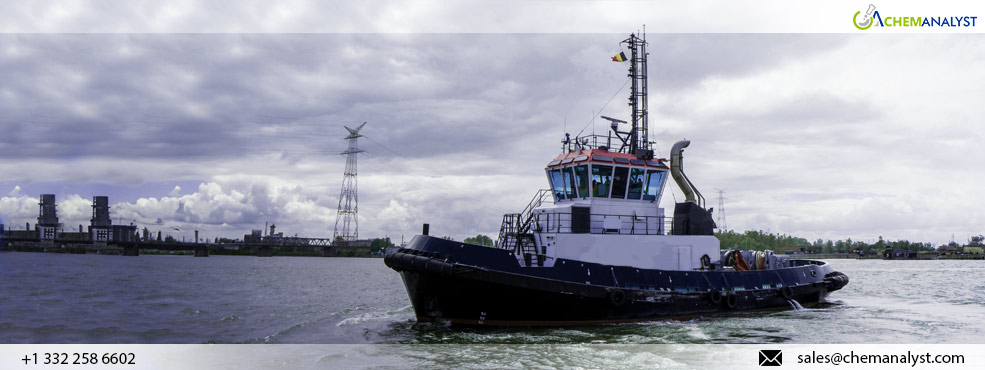Welcome To ChemAnalyst

On May 14, 2024, the Port of Antwerp-Bruges unveiled a global first: the Methatug. This innovative tugboat, powered by methanol, marks a significant milestone in the port's fleet greening initiative and represents a pivotal stride toward achieving a climate-neutral port by 2050. Supported by funding from the European research program Horizon 2020, the Methatug project is a crucial component of the FASTWATER initiative, designed to showcase methanol's viability as a sustainable fuel within the maritime sector.
Methanol emerges as a fuel of the future, offering reduced emissions—a crucial aspect in the Port of Antwerp-Bruges' quest for climate neutrality by 2050. Today, Antwerp witnessed the unveiling of the world's inaugural methanol-powered tugboat, the Methatug. Methanol, derived from renewable sources, stands out as a clean, versatile fuel suitable for both new vessels and retrofits due to its liquid state under standard conditions. In the case of the Methatug, existing tugboat engines underwent conversion into 'dual fuel' systems, capable of operating on a blend of methanol and conventional fuel. With a length of 30 meters and a pulling force of 50 tons, this tugboat boasts a methanol storage capacity of 12,000 liters, ample for two weeks of towing operations.
The Methatug forms an integral part of the European FASTWATER initiative, designed to showcase methanol's viability as a sustainable fuel within the maritime sector. This endeavor received funding from the European research and innovation program Horizon 2020. Alongside the Port of Antwerp-Bruges, various partners within the FASTWATER consortium play pivotal roles in this venture. These include ScandiNAOS, a Swedish ship design agency, Anglo Belgian Corporation, a Belgian engine manufacturer, Heinzmann, a German company responsible for methanol injectors, Ghent University overseeing emission monitoring, and Methanex, a Canadian methanol supplier for trial purposes. Within the FASTWATER project, conversions to methanol propulsion are also underway for a pilot boat in Sweden, a river cruise ship in Germany, and a coastguard vessel in Greece. De Wit Bunkering will facilitate Methatug's methanol supply via truck-to-ship bunkering at the Port of Antwerp-Bruges Nautical Operational Cluster (NOC).
This groundbreaking debut is an integral component of Port of Antwerp-Bruges' extensive fleet greening initiative, aimed at methodically incorporating the most environmentally sustainable technologies. To date, the fleet has welcomed the Hydrotug 1, the pioneering hydrogen-powered tugboat, along with energy-efficient RSD tugboats. Furthermore, another electrically powered tugboat, slated to become the first of its kind in Europe, is scheduled to join the fleet later this year.
Ranked as the fifth largest bunker port globally, the Port of Antwerp-Bruges is steadfast in its ambition to evolve into a versatile multi-fuel port. Here, both seagoing and inland vessels will have access to bunkering services, not limited to traditional fuels but encompassing alternative, low-carbon options such as methanol, hydrogen, or electricity. In early April, Antwerp witnessed a significant milestone with the inaugural methanol bunkering operation involving the deepsea vessel Ane Maersk, marking a pivotal step forward in realizing this ambitious vision.
The Methatug boasts impressive specifications, measuring 11 meters in width and stretching 29.5 meters in length. With a weight of 584 tons, it demonstrates robust construction suitable for its demanding tasks. Equipped with a powerful 50-ton bollard pull, it showcases exceptional towing capabilities. Its onboard storage capacity is substantial, accommodating up to 12,000 liters of methanol, ensuring extended operational endurance. The tugboat is powered by two ABC 8DAC dual fuel medium-speed engines, showcasing versatility in fuel usage while maintaining efficient performance standards.
We use cookies to deliver the best possible experience on our website. To learn more, visit our Privacy Policy. By continuing to use this site or by closing this box, you consent to our use of cookies. More info.
